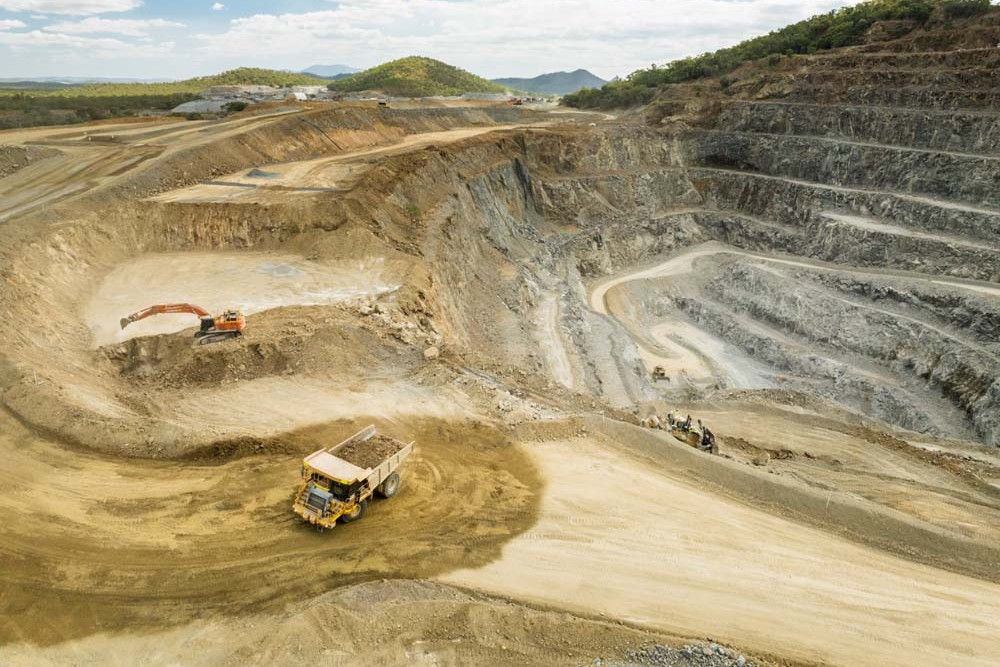Community & Business
11 September, 2024
Mt Carbine tungsten deal critical to world security
TUNGSTEN from a Mt Carbine mine will play an integral role in global security, with the United States moving to secure a supply of the hard metal for products critical to its defence, aerospace, medical, industrial and semiconductor sectors.

With China and Russia the dominant world suppliers of tungsten, EQ Resources’ Mt Carbine mine and its newly-acquired Spanish mine has become critical to the US, with the US Defense Production Act (Title III), now classifying the raw material coming from Australia as “US domestic sources”.
According to EQ Resources operations manager Ryan MacNeill, the move not only strengthens the supply chain, but grants access to substantial US funding programs aimed at bolstering “mission-critical sectors”.
At the same time, EQ Resources, which also owns Wolfram Camp mine near Dimbulah, has entered into a strategic partnership and long-term offtake agreement with Elmet Technologies, the only US-owned and operated tungsten and molybdenum manufacturer.
This collaboration is set to redefine the tungsten supply chain.
“This partnership is of profound geopolitical significance, particularly given that neither the US, Canada, nor the United Kingdom currently have operating tungsten mines,” Mr MacNeill said.
“This agreement fortifies the strategic supply chain between Australia and the US, ensuring resilience in industries crucial to national security, technological advancement, and sustainable energy development.”
As part of the agreement, Elmet is to purchase EQR tungsten concentrate with an estimated value of $30 million (at current market prices) over a five-year period.
Elmet chief executive officer Peter Anania said the collaboration with EQR would provide its tungsten customers in defence, aerospace, medical, and semiconductor with increased supply-chain resiliency.
“Over the past five years, Elmet and the US Department of Defense have worked together to improve tungsten industrial base resiliency through special government programs,” he said.
“With an increasing focus on critical materials used for defence applications, securing long-term access to high quality tungsten concentrate was a strategic imperative for our business.
“This collaboration with the fastest growing Western tungsten mining group, having active mines in both Australia and Spain, will ensure our ability to support the growing demand for our materials, particularly in the US and Western countries.”
EQR chief executive officer Kevin MacNeill said raw material security had become “a top priority, geopolitically and in many board rooms around the world and investing in sustainable mining in Australia and Spain provides a unique market solution”.
The Mt Carbine operation has been producing tungsten concentrate for the past three years, with around 200 tonnes a month worth around $3.5 million being produced from its open pit.
That equates to around 2500-3500 tonnes of concentrate a year, says Ryan MacNeill, depending on where the ore is being mined from the pit.
“There is about 4-5 years left of open pit mining capability but we want to do the underground (mining development) in parallel because the scoping study showed another 10 years’ worth of tungsten,” he said.
He said the company was also seeking to develop underground operations over the next two years and would also look at how Wolfram Camp could be developed further.
“We will be doing the feasibility of underground for the next 12 months, so within the next 24-36 months, we would ideally be targeting underground operations subject to feasibility and funding,” Mr MacNeill said.
The cost to develop the underground operations would be between $20-40 million and funding for that would come from both the revenue generated by the mine but also potentially from US grants now that the raw material was classified as “US domestic sources”.
“The Defense Force Act opens up additional paths for grant funding, loan funding or various financial mechanisms that help develop critical raw materials that can go into US supply chains,” he said.
Mr MacNeill understood that Elmet Technologies had been the recipient of around $1 billion in US government grants annually.
“So, it’s pretty serious – the US Government is needing tungsten especially because it’s not readily substitutable and is involved in construction, infrastructure, and for the defence industry, it’s critical. The defence consumption has grown by 10% and is the highest growth sector in the past two years,” he said.
“With China controlling 83% of the world’s tungsten, they are still exporting but the western world is heavily reliable on tungsten end products. It’s a challenge for the West not to be reliant on Chinese supply.
“We have seen it recently with rare earths where they have turned off supply and the US is scared that tungsten is next so that’s why it’s critical to secure a Western supply chain.”


